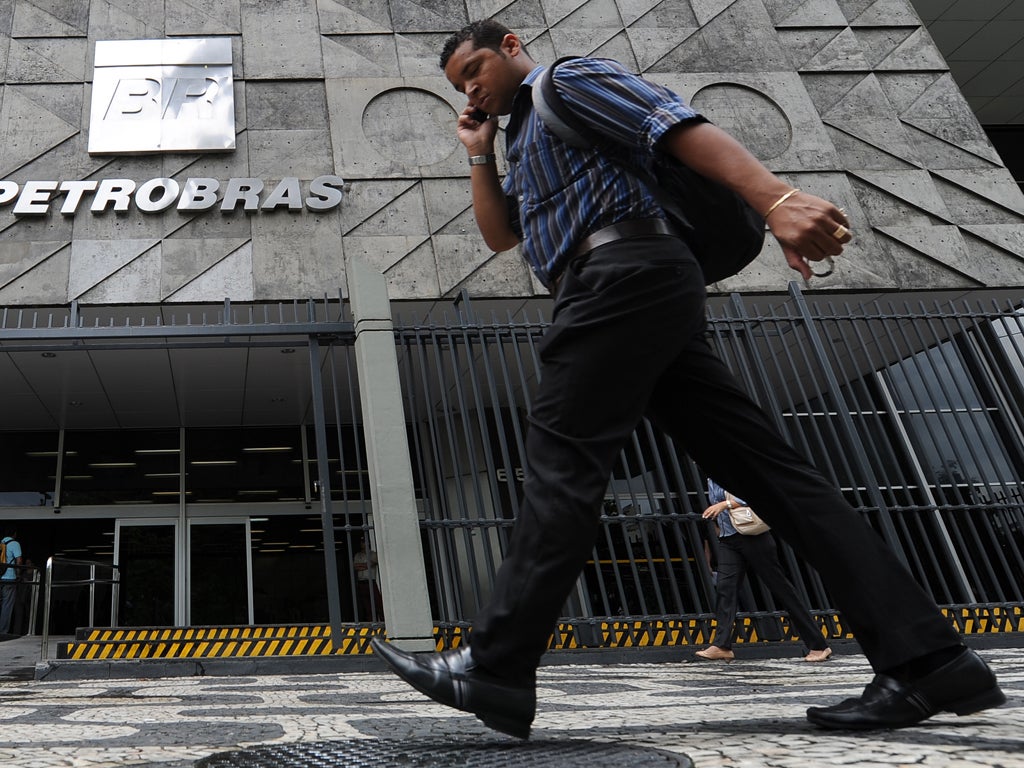UK Government pledges £1.7 billion financial support to fossil fuel industry despite pledge
The coalition agreement vowed to use export credit guarantees to support 'green' technology instead of 'dirty fossil fuel energy production'

Almost five years after David Cameron announced his commitment to running the “greenest Government ever”, it has emerged that £1.7 billion of financial support has been pledged to fossil fuel industries.
Analysis by Greenpeace showed that the UK Export Finance department (UKEF) has backed British exporters working with firms including Russian gas firm Gazprom and Brazilian energy giant Petrobras with credit guarantees.
The department offers them as a surety to protect exporters against international firms defaulting on payments to boost trade and minimise risk.
The 2010 Coalition manifesto stated that the Government would ensure that “UK Trade and Investment and the Export Credits Guarantee Department become champions for British companies that develop and export innovative green technologies around the world, instead of supporting investment in dirty fossil-fuel energy production.”

But the UKEF guarantees listed by Greenpeace are tied to projects including coal mining in Russia and exploration for oil and gas in Brazil.
In the last financial year, the organisation found that more than £380 million of guarantees were awarded to Petrobras, which is embroiled in a corruption scandal, as part of a £660 million line of credit signed with the firm in 2012.
Support for trade involving Russian coal projects, financial backing for state-owned gas giant Gazprom to receive engineering equipment from Rolls-Royce Power Engineering and the provision of expertise and software to other fossil fuels projects was also found.
In 2013, the government hailed the “biggest project financing facility in the UKEF’s history” to support a huge petrochemical plant in Saudi Arabia.
The agency guaranteed $700 million (£450 million) of finance to British companies bidding for contracts to build the $19 billion (£12 billion) Sadara Project.
Three British companies working in engineering, procurement and construction - Jacobs, Fluor and Foster Wheeler – were among those benefiting.

David Havelock, then UKEF’s chief executive, said at the time that the department was “pleased to work closely on this prestigious project with such high quality sponsors”.
A spokesperson for UKEF said its role was to support British exporters through enabling them to “take advantage of overseas contracts” by providing insurance and guarantees.
“We have a dedicated Environmental Advisory team which reviews the environmental, social and human rights issues of projects covered by the OECD’s Common Approaches, prior to the department agreeing to provide support,” she added.
The agency does not consider the guarantees listed by Greenpeace as violating the coalition agreement’s pledge not to support “dirty fossil-fuel energy production”.
The spokesperson said the UKEF understands the phrase to refer to “projects producing pollution in excess of international environmental standards”, which it does not support.
“UKEF adheres to the standards set out in the OECD Common Approaches and will normally refuse support for exports to projects that do not meet those standards,” she added.
“UKEF has an extensive programme of raising market awareness of its products and services to companies in the renewables sector.
“However demand has been low; many companies are concentrating on the domestic market, many need equity and development finance, rather than the services of UK Export Finance, and companies which are exporting are focusing on mature markets where the need for risk protection and export finance is limited.”
Downing Street declined to comment.
Join our commenting forum
Join thought-provoking conversations, follow other Independent readers and see their replies
Comments
Bookmark popover
Removed from bookmarks